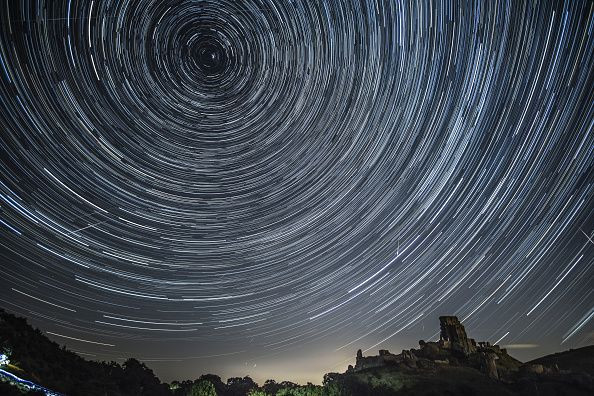Godlike Aliens On A Mission Visited Earth In Recent UFO Sighting?

A UFO sighting over the State of Trujillo, Venezuela could have been a visit from “godlike” aliens.
Friman Rodriguez and his cousin reportedly saw a UFO one hot day on Feb. 16. The used the former's phone to capture images of the sighting. Additionally, Rodriguez also told reporter Hector Escalante that he suffered a "painful headache" after seeing the object.
According to him, the UFO appeared to be a bright orange light “zig-zagging” across the sky that afternoon. The blog Inexplicata - The Journal of Hispanic UFOlogy said that there was a power blackout around the same time as the UFO’s arrival.
Alien enthusiast Scott Waring analyzed the photo taken by Rodriguez, and he suggested that such type of UFO has been observed in South America several times already. According to Waring, the UFO is a type of "godlike" alien species. Up close it seems like a bright orange light. Since it is too bright, many people could mistake it for the Sun during sunset.
Rodriguez noted that he didn't think much of it at first since it seemed like the Sun's reflection. However, he realized that the Sun was farther below and was to the left. He claimed that he felt fortunate to have seen the rare sighting.
Some speculations about the visit of the supposed "godlike" aliens include preventing humanity's horrible future, abducting them and teaching them about the possible ending in the future. Inexplicata further said that this type of UFO sighting in the country is mostly observed in areas rich in water and vegetation.
As for the continued search for life, astronomers may have found a way to check for more alien planets. Recently, a team of astronomers and engineers led by the University of Texas at Austin and Google developed an algorithm that can sift through the data of the Kepler space telescope.
This helped them discover two alien planets: K2-293b and K2-294b. Anne Dattilo, an undergraduate physics student at the University of Texas at Austin said that the same method may be used in NASA's TESS, which is the space agency's recently launched spacecraft that’s tasked to find more exoplanets.
© Copyright IBTimes 2025. All rights reserved.





















